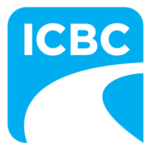
Being at home after a hospital stay can be a significant adjustment, especially for seniors and individuals managing chronic health conditions. However, home healthcare services make the post-hospital discharge process smoother and more manageable.
Here’s what to expect when making the transition from hospital care to home care:
1. Receiving A Comprehensive Assessment After Hospital Discharge
Upon returning home, a private home healthcare provider will conduct a comprehensive assessment to evaluate the individual’s health status, care needs, and home environment. This assessment helps determine the level of support required and informs the development of a personalized care plan.
2. Being Assigned An Experienced Team of Home Nurses Skilled in Nursing Care
Home health care services may include skilled support provided by registered nurses or licensed practical nurses. These individuals can assist with wound care, medication management, post-operative care, and vital sign monitoring to ensure a safe and smooth recovery at home.
3. Physical Therapy with Home Health Care Services
Private home health care may include physical therapy, occupational therapy, or speech therapy for individuals recovering from surgery or managing chronic conditions. These therapy services help improve mobility, regain strength and independence, and address speech or swallowing difficulties, easing the transition from the hospital.
4. Private Home Health Care Support that Includes Daily Activities
Home health aides or personal care attendants can assist with daily living activities, like bathing, dressing, grooming, and meal preparation. These caregivers offer invaluable support to help individuals maintain their independence and dignity while recovering at home.
5. Medication Management To Ensure Continuity of Care
Managing medication properly is crucial for a successful recovery at home. A home nurse or other private home health care provider can assist with medication management, including medication reminders, organizing pill dispensers, and ensuring that prescriptions are filled and taken as prescribed.
6. Home Health Care Services that include Education and Support
Caregivers can offer education and support to both individuals and their primary caregivers. Some of this education can involve providing information about the individual’s condition, treatment plan, and self-care techniques, empowering them to actively participate in their recovery and ongoing health management during this transition.
7. Regular Monitoring and Communication with Home Nurses
Care providers regularly monitor the individual’s progress and communicate with their healthcare team to ensure continuity of care. A home nurse can identify any changes in health status or personal needs and make necessary adjustments to the care plan to promote optimal outcomes.
Professional home health care services can assist in the smooth transition from hospital to home.
This can also help with a smoother recovery, fewer risks of complications, and enhance overall well-being.
By providing personalized care, physical therapy, and wellness support through daily activities, these services enable individuals to regain their independence and quality of life in the comfort and familiarity of home after a hospital discharge.
To learn more about how a service like this can support you or your loved one, please contact us for a free care consultation.







